Anthology films like ‘Ajeeb Daastaans’ often conceal a hidden theme that ties the disparate stories together. Following the critical success of ‘Dhobi Ghat’ and ‘Ship of Theseus,’ there has been a recent upsurge in portmanteau films in Bollywood. Containing four shorts directed by Shashank Khaitan, Raj Mehta, Neeraj Ghaywan, and Kayoze Irani, the present romance anthology drama explores how fractures in personal and social relationships give way to unexpected revelations and epiphanies.
Shocking and at times profound, the film looks at classist, gendered, casteist, and disabled identities in the Indian context, but all the while, it remains unfalteringly humane in scope. Most of the characters shown in the film are flawed in one way or the other, but as the film depicts the grey areas of ethics and morality, they all have their own justifications behind the acts they commit. As there are four standalone stories with four mind-bending endings, some of them are bound to make you look for answers, and that is where we enter the picture. Let us take you through the film and decipher the endings for you. SPOILERS AHEAD.
Majnu Plot Synopsis
Wealthy estate owner Babloo weds Lipakshi, but devoid of love, their marriage stands on volatile grounds. In an episode taking place three years after the marriage, a lustful man tries to woo Lipakshi in the absence of Babloo, and Lipakshi nonchalantly plays along, anticipating the man’s fate. Babloo returns in time and makes the man take a dump in a tub full of heated oil, not paying heed to his desperate defense cries.

Babloo’s driver Mishra has a son in dashing and competent Raj who has studied in a Mumbai college and is looking forward to moving to London for a job. However, upon meeting Raj, Babloo offers to hire him against a greater amount of money than what the London firm is giving him. Finding a lucrative opportunity to settle past scores, Raj accepts Babloo’s offer. Lipakshi makes it evident to Raj that their marriage is falling apart and coaxes Raj to spend more time with her.
Raj is cautious not to get himself in trouble, but gradually he and Lipakshi develop a forbidden romance, hiding from the eyes of tyrannical Babloo. We see another, more humane side of Babloo, a gay man who has entered a heteronormative marriage out of circumstantial pressure. Lipakshi plans a daring escapade with Raj, but as his character is driven by an ulterior motive, the final moments unfold quite an unexpected turn of events.
Majnu Ending: Does Babloo Kill Lipakshi?
One of convenience rather than one of love, the marriage of Babloo and Lipakshi was fated to be doomed right from the beginning. We have seen Babloo threatening Lipakshi that he is going to take her life, but daring and libertine Lipakshi urges him to kill her with his own hands. Babloo is a gay man who cannot possibly love a woman.
Lipakshi is a passionate young heterosexual woman who seeks fulfillment in life through love. At this juncture, Raj enters the scene, complicating the nuptial relationship even further. While Lipakshi is swooned by the gentlemanly persona of Raj, we get to know in due course that Babloo has also fallen for Raj. In the final moments, it becomes evident that Raj had entered their unhappily married lives to get his own revenge.
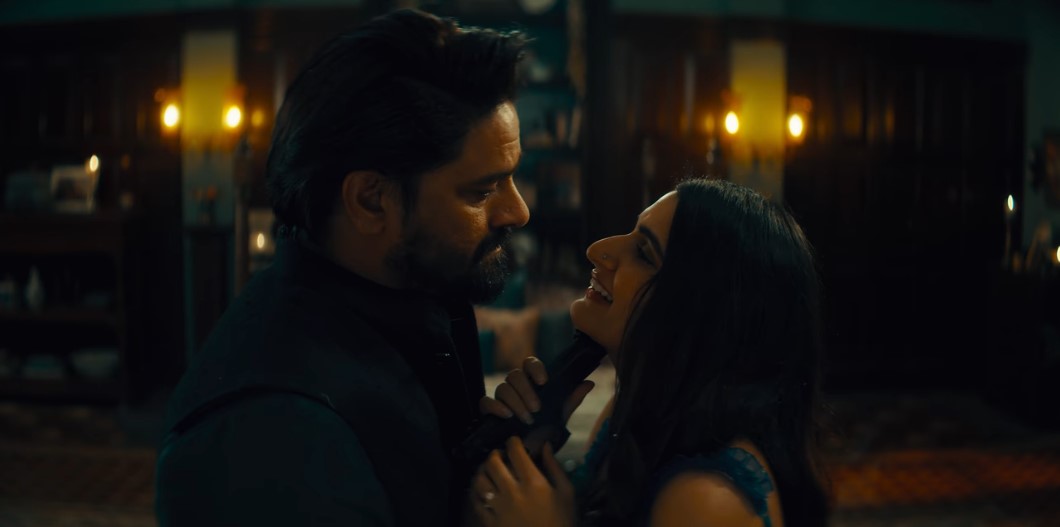
As a young man, Babloo had broken his father’s legs for breaking the headlight of a Mercedes owned by the family, and from that day, Raj has been hell-bent on having sweet revenge. After promising Lipakshi to flee with her, Raj also promises an infuriated and saddened Babloo that he is going to kill Lipakshi. He betrays both of them and takes his exit overseas, where Babloo cannot reach him.
In the final moment, Babloo and Lipakshi are left to reconcile with each other. Babloo points a gun on his wife’s head, and when she urges him to use his hands, he attempts to strangulate her. However, Lipakshi is pregnant, and Babloo needs an heir to continue the line of the family. He knows that he himself could never have done it due to his own sexual dispositions and decides against killing Lipakshi.
Khilauna Plot Synopsis
In a wealthy family, children are playthings really. Giving birth to a child manages to hide a lot of internal turmoil and rift between spouses. For orphaned sisters Meenal and Binny, everyday life is a struggle. However, with a little drama and cleverness, they manage to sustain their own. Meenal works as a maid in a posh gated community, and her sister Binny studies at a government school.
Meenal works in the household of Abha, a kind woman who hasn’t had the luck to become a mother and therefore is extra caring towards bubbly Binny. The new president of the community, Vinod Agarwal, has cut the illegal electric connection in the sisters’ humble household, and Meenal looks for a way to approach Mr. Agarwal to get the lights back.
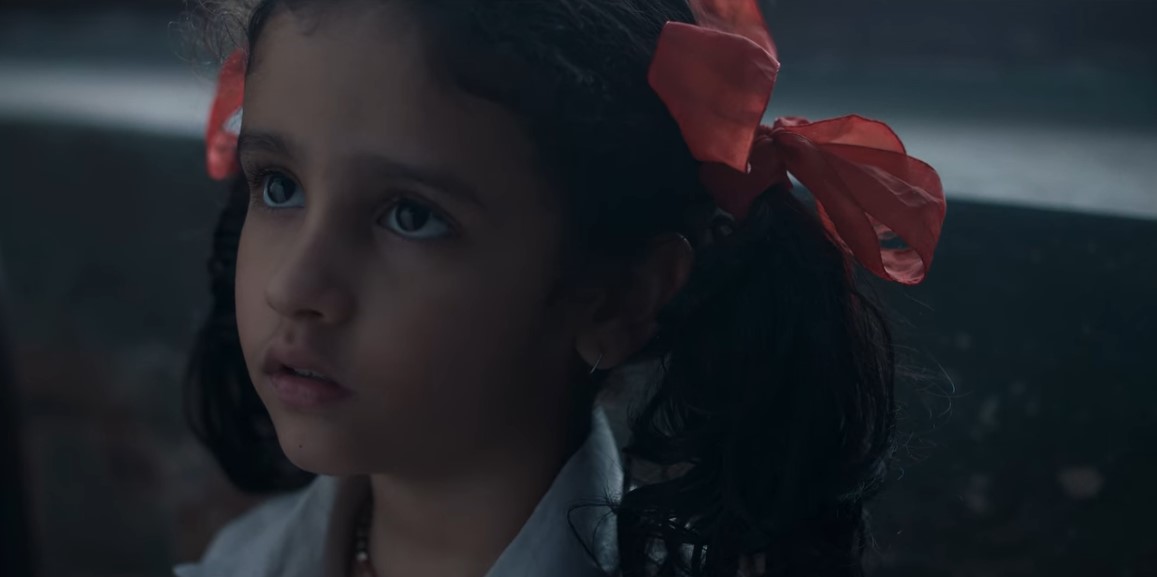
Meenal has a lover and confidante in Sushil, a poor launderer with a stall inside the community premises. In an attempt to get the electricity back, Meenal takes a job in the household of Mr. Agarwal, whose lustful eyes flicker behind dark sunglasses. Mrs. Agarwal is pregnant, and Meenal does all the household chores. After the birth of little Agarwal, Vinod tries to grope and molest Meenal on one occasion, and she leaves, crying. An enraged Vinod beats up Sushil for no reason, later inviting the three of them to the house party commemorating the new member of the Agarwal family. However, the child dies a horrific death being pressure-cooked, and the final twist exposes a far more sinister truth regarding the killer’s identity.
Khilauna Ending: Who Killed the Agarwal Baby?
Following the gruesome death of the baby, the police bring in Meenal, Binny, and Sushil for interrogation. Meenal repeatedly says that she does not know anything about the murder, and after taking a beating, Sushil reveals the groping incident to the officer. Sushil also admits to stealing a bottle of alcohol from the party and later damaging the main meter box of the locality. Meenal claims that childless Abha has done the deed, driven by her jealousy of Mrs. Agarwal’s potency. Abha comes to the police station defending her own, and she seems to divulge important information to the police.
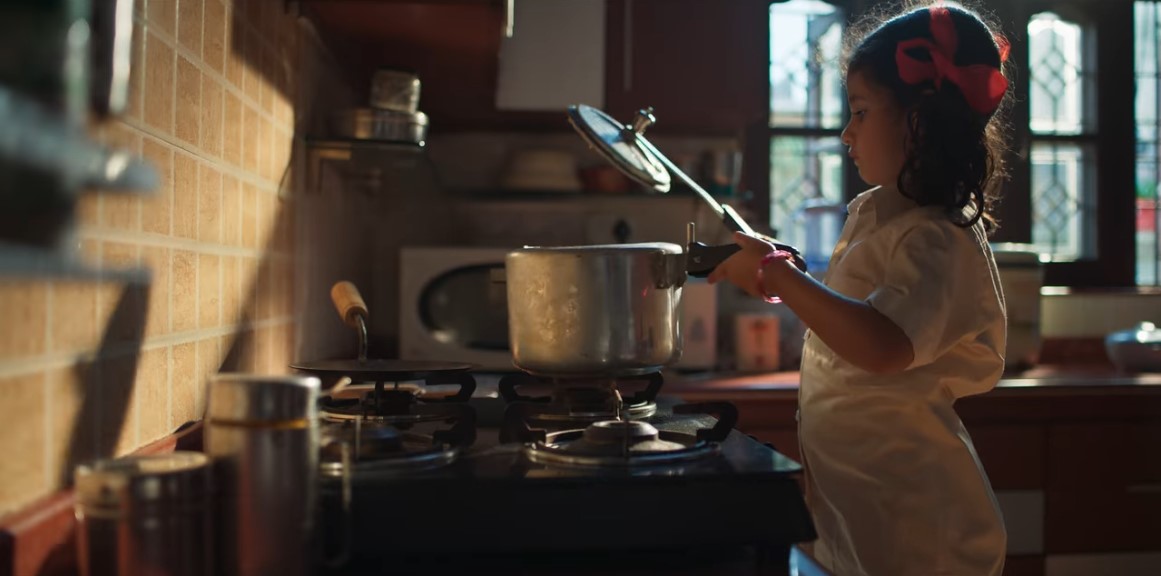
We cannot hear what she says, but the officer comes back to check the bag of Binny, discovering the handheld toy that belonged to the Agarwal child. As Binny stares into the eyes of the officer to say that the child was just a plaything, we sense that it is not the elders but the juvenile Binny who has killed the child. The child has been cooked alive in a pressure cooker, and we have seen Binny toying with the lid of the cooker in a previous scene. Perhaps she got infuriated when she saw Vinod groping her sister, which compelled her to take the vengeful path.
Geeli Pucchi Plot Synopsis
Neeraj Ghaywan’s ‘Geeli Pucchi’ is the intersectional story of two lesbians, united by their sexual choice but separated by caste. Bharti (Konkona Sen Sharma) works at a factory, and her boss has hired a new accountant named Priya (Aditi Rao Hydari). After a rough start, they develop an unlikely relationship, but Bharti gets reminded of her marginal position in society time and again.
In a country where caste influences treatments in the workspace, Bharti gets determined to manipulate Priya to have a child with her husband. While Priya is tormented by her true identity, she is too conditioned by the societal rules to get out of her closeted state. Bharti takes this opportunity to ensure upward mobility for herself.
Geeli Pucchi Ending: Does Bharti Love Priya?
In the beginning moments, college-educated Bharti is angry that a girl named Priya got the job of an accountant, while she was previously told by her boos that the post is not open. Bharti is consoled by her fellow workers who tell her the real reason behind her not being promoted to the non-menial post, which is her lower caste origin. However, after a cold and bumpy start, reserved Bharti starts falling for chatterbox Priya.
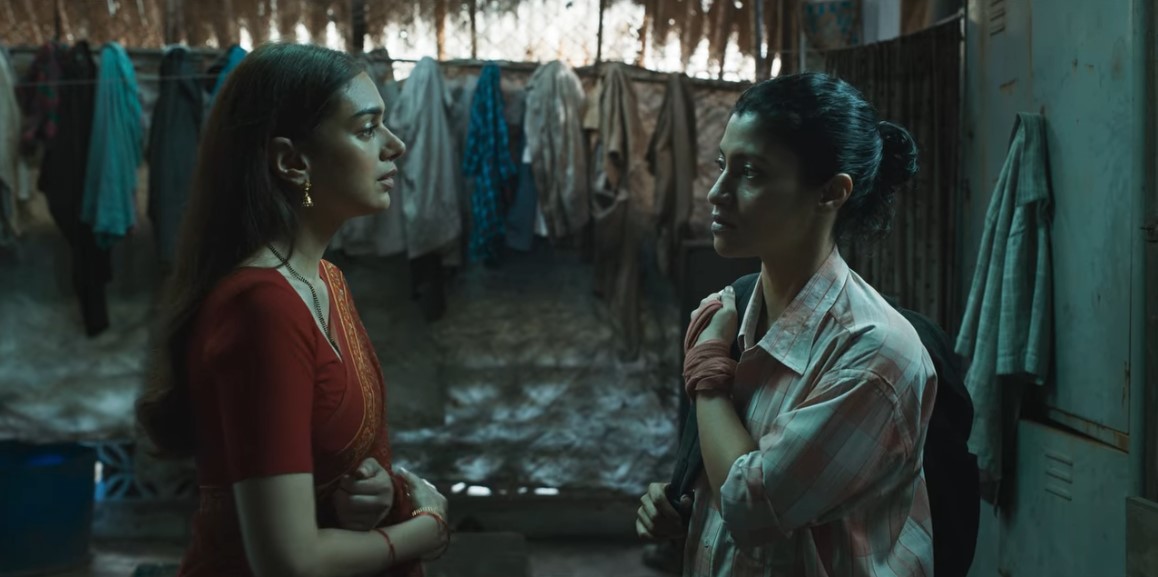
However, Bharti is cautious not to reveal her true caste identity to Priya, who belongs to a Brahmin family. They go on to rendezvous around the city, binging on Dahi Vada (curd fritters) and taking strolls at the park. However, life is not all fun and games, and Priya is tormented about her sexuality which bars her from loving her extensively caring husband.
Bharti decides to help her overcome her social expectations, but when Priya reacts oddly after Bharti revealing her true caste, Bharti is reminded of the ingrained Indian social reality of untouchability. Caste identities come into the equation, and Bharti is made to feel like an outsider by Priya, who abandons her on multiple occasions. When the seniors at the office celebrate Priya’s birthday, Bharti is made to serve the cake to the officials.
Priya cannot even stand up for her “best friend,” and Bharti complies with clenched jaws, only to break into tears in the changing room. Even if Bharti did love Priya for a moment, and most certainly she did, this marks the moment of her heartbreak. Following the heartbreak, she manages to convince Priya to have a child, grudgingly noting that a child is the only fulfillment in a woman’s life, but Priya is too naïve to understand the anger behind the suggestion. In the process, Bharti makes sure that she gets the job that she desired, and the final moment sees Bharti’s triumph in a work environment that is often keen on demising her.
Ankahi Plot Synopsis
Kayoze Irani’s ‘Ankahi’ is the compelling final story that marks an end to the anthology drama. The story follows a troubled marriage, where the wife becomes involved in an extraordinary extra-marital relationship, only to return to her own family in the end. Natasha and Rohan have been married for quite some time, and both of them seem to care for their bright young daughter Samaira, although the degree to which they care for her is visibly different.
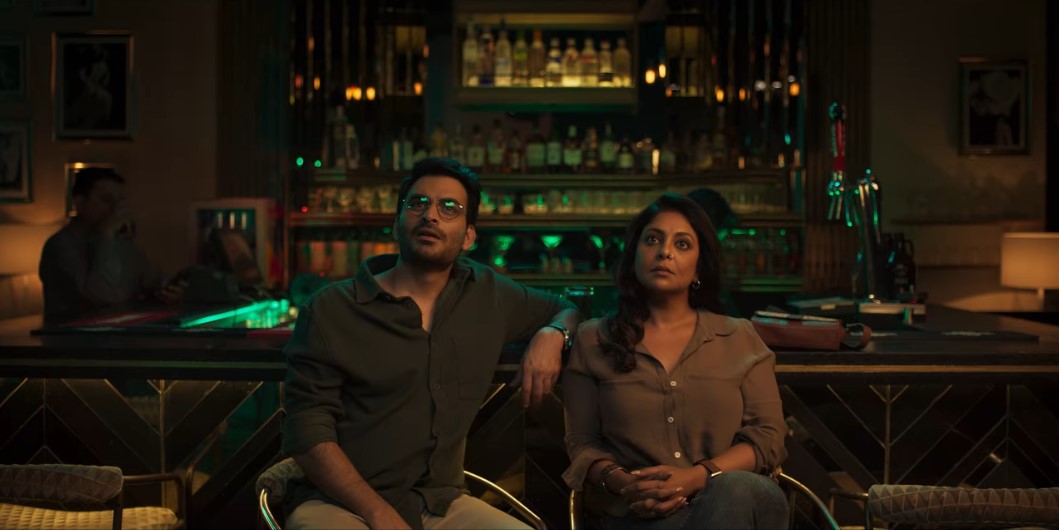
While Natasha is ready to walk an extra mile to learn the sign language, Rohan is too busy with his professional life. Natasha, in her midlife, is facing a crisis of sorts, but the crisis seems to get resolved when she meets a charming photographer in an exhibition. To Natasha’s astonishment, the photographer Kabir (Manav Kaul) is dumb and deaf, and in the absence of any other means, they converse using sign language.
While the emotions are unspoken, there seems to be a spark, which culminates in Natasha spending a night at Kabir’s house. In the morning, Kabir practices proposing to Natasha in front of a mirror, but when the opportune moment comes, he fails to express his true emotions. Natasha leaves for her home, and Kabir follows her, only to find out about Natasha’s family. He accuses Natasha of lying through her eyes, and after coldly asking him to leave, Natasha breaks down in tears.
Ankahi Ending: Do Natasha and Rohan Get Divorced?
As Natasha gets involved in an affair with Kabir, the divorce of Natasha and Rohan seems imminent. They have bitter fights, and teenager Samaira conjectures that her father does not love her mother. As the couple is reaching the end of their youth, a rift is clearly visible between the two. Natasha accuses Rohan of not taking care of their daughter, and while Rohan seems to be trying his best, his midlife frustration comes out in violent outbursts.

However, Natasha is deeply attached to her family, and the night when she visits Kabir’s place, a momentary hesitation seems to make her storm out of the house. While sitting on the staircase, reconsidering her life choices, she receives a message from Rohan, who says that he won’t be coming home for the night. She is momentarily free to pursue her heart’s calling and returns to Kabir.
The following morning, upon reaching home, Natasha catches Rohan and Samaira in a light-hearted moment. Negating Natasha’s complaint that Rohan does not make Samaira laugh, the father and daughter seem to be getting along quite well. When Kabir reaches the house, Natasha refuses to recognize him and breaks his heart in the process. We are left under the impression that Natasha goes back to living a fulfilled life with her husband after ditching Kabir.
Read More: Best Indian Indie Films

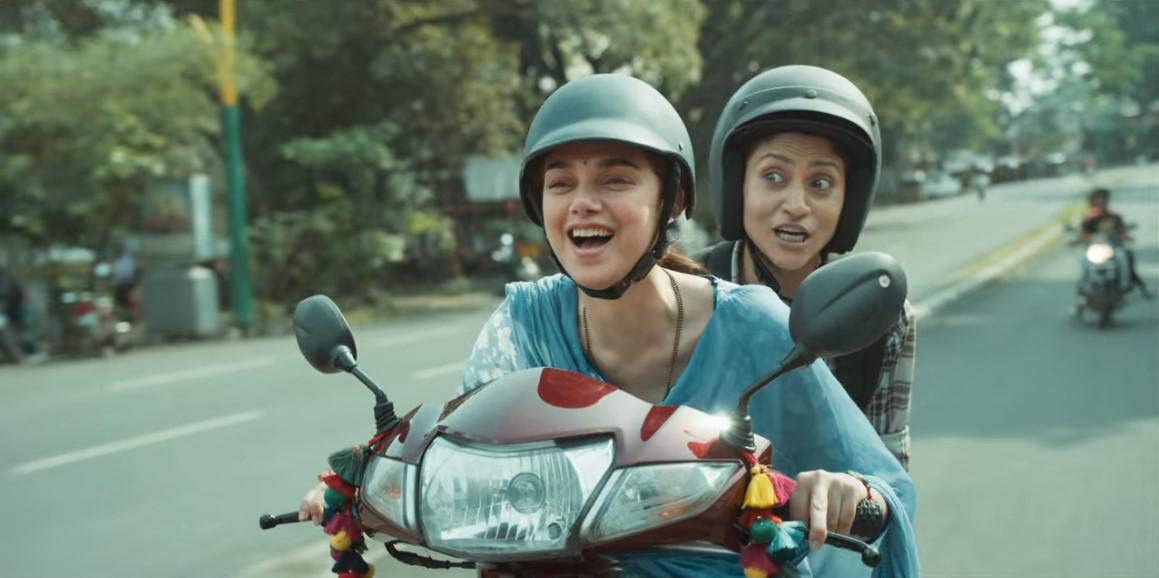
You must be logged in to post a comment.